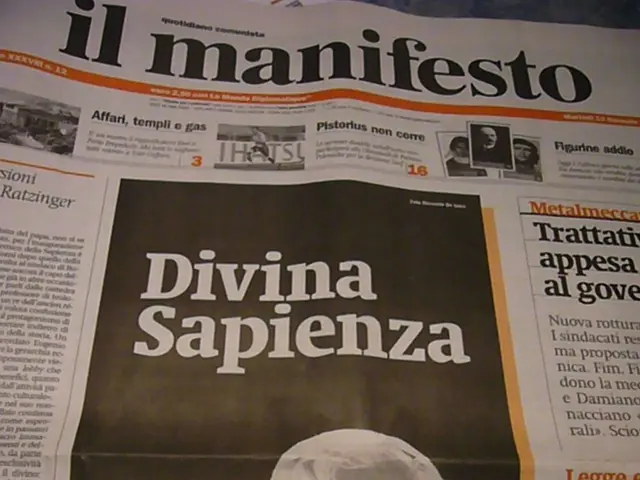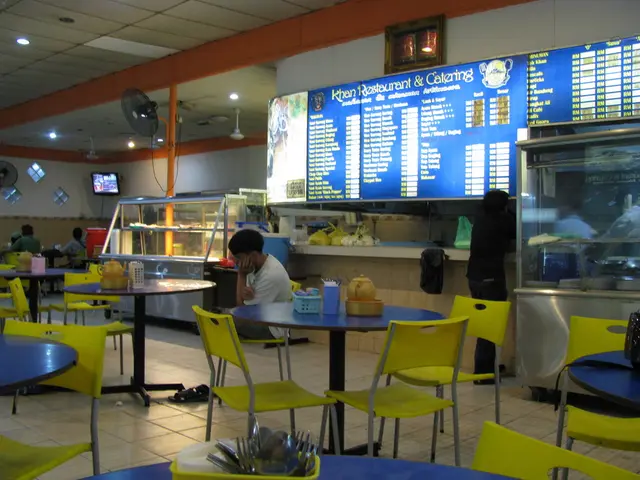Kaplan's Query: Is Trump in possession of the maps?
Let the Cards Fall
Michael Kaplan is back at it again, dishing on Donald Trump in his latest article for Cardplayer, shoehorning in political jabs but this time focusing on Trump's gambling style - reckless, impulsive, and downright dangerous. This isn't the first time Trump has been shuffled into a game of cards, but the stakes are most certainly higher now.
Kaplan can't help but draw parallels between Trump's Atlantic City casino failures and his current presidency, calling it a recipe for disaster. Trump once owned three casinos - even before gambling became legal in most states - a time when a New Jersey license was almost a surefire profit. But all three casinos went belly-up. Do you know what they say about a business where it's nearly impossible to lose? Trump somehow managed to pull it off.
Kaplan likens Trump's presidency to a player who inexplicably won the WSOP Main Event and now conducts himself like a high-roller in Bobby's Room at Bellagio, throwing his chips around without a care for the consequences. He plays with a "lucky-unlucky" style, neglecting to consider who he's up against on both the global stage and the economy.
It's no secret that some American presidents were known for their poker skills - Harry Truman, Franklin Roosevelt, Richard Nixon. But Trump - he's not in their league. He "bluffs, raises, plays, and all that - in a game where the future of the nation is at stake."
Remember that time Kaplan interviewed Trump back in the 90s? Trump instantly asked if he'd be on the cover. Hearing a no, Trump lost his cool and the negotiations fell through. "In the end, he got nothing, and I'm writing about him now. You could say I won in the end," Kaplan quips.
Kaplan shares fond memories of playing blackjack at Trump Marina, then known as Trump's Castle, thanks to some card counting. Gifts, good cigars, and steak at DJ's Steakhouse - it was all part of the deal. But the fairy tale ended when, during a winning streak, he was asked to leave the table. He departed the casino with a win and some tasty cigars in hand.
Trump Marina, now known as the Golden Nugget, remains a symbol of Trump's era: flashy, loud, and pretentious, generous with gifts but ineffective in business. It's a bitter pill for Ukraine to swallow, watching this "business" unfold on the world stage.
Michael Kaplan is a New York journalist and author of five books, including the upcoming "The Advantage Players". His work appears regularly in Wired, GQ, and the New York Post. He specializes in the intersection of technology, gambling, and big business.
A Game of Chance
Kaplan's analysis of Trump's Atlantic City casino failures reveals some unsettling parallels with his presidency. The casinos - Trump Plaza, Trump Castle, and Trump Taj Mahal - relied heavily on junk bonds and debt, leading to several bankruptcies. The Taj Mahal, financed with millions in junk bonds and completed with a hefty price tag, filed for Chapter 11 in 1991. By 2004 and 2009, Trump Hotels & Casino Resorts underwent further bankruptcies, slashing Trump's ownership stake to just 10 percent. These collapses stemmed from excessive debt, aggressive expansion, and dubious financial practices.
Trump’s tendency to prioritize short-term wins and personal branding over systemic stability has prompted many critics to draw comparisons between his business strategies and his political leadership style. His use of high-stakes gambles, media dominance, and simplified messaging align with the patterns of financial missteps that led to his casino failures. Unsurprisingly, this approach has consequences, such as polarizing the electorate and eroding long-standing norms.
- Michael Kaplan's analysis of Trump's Atlantic City casino failures shows worrying similarities to his presidency, with both relying heavily on high-risk strategies.
- Trump's casino failures, such as those at Trump Plaza, Trump Castle, and Trump Taj Mahal, were due to excessive debt, aggressive expansion, and questionable financial practices.
- The Taj Mahal, financed through junk bonds and completed with a high price tag, filed for bankruptcy in 1991.
- Trump Hotels & Casino Resorts, too, went bankrupt multiple times, diminishing Trump's ownership stake to a mere 10%.
- Trump's preference for short-term wins and personal branding over long-term stability has been a frequent target of critics, who see parallels between his business and political strategies.
- The consequences of these short-sighted approaches have been wide-ranging, including polarizing the electorate and eroding established norms.
- The collapse of Trump's casinos and his subsequent political career serve as a stark example of the risks associated with impulsive, luck-based decision-making, a lesson perhaps even more relevant in the realms of politics and pop-culture than in casino-games and entertainment.






